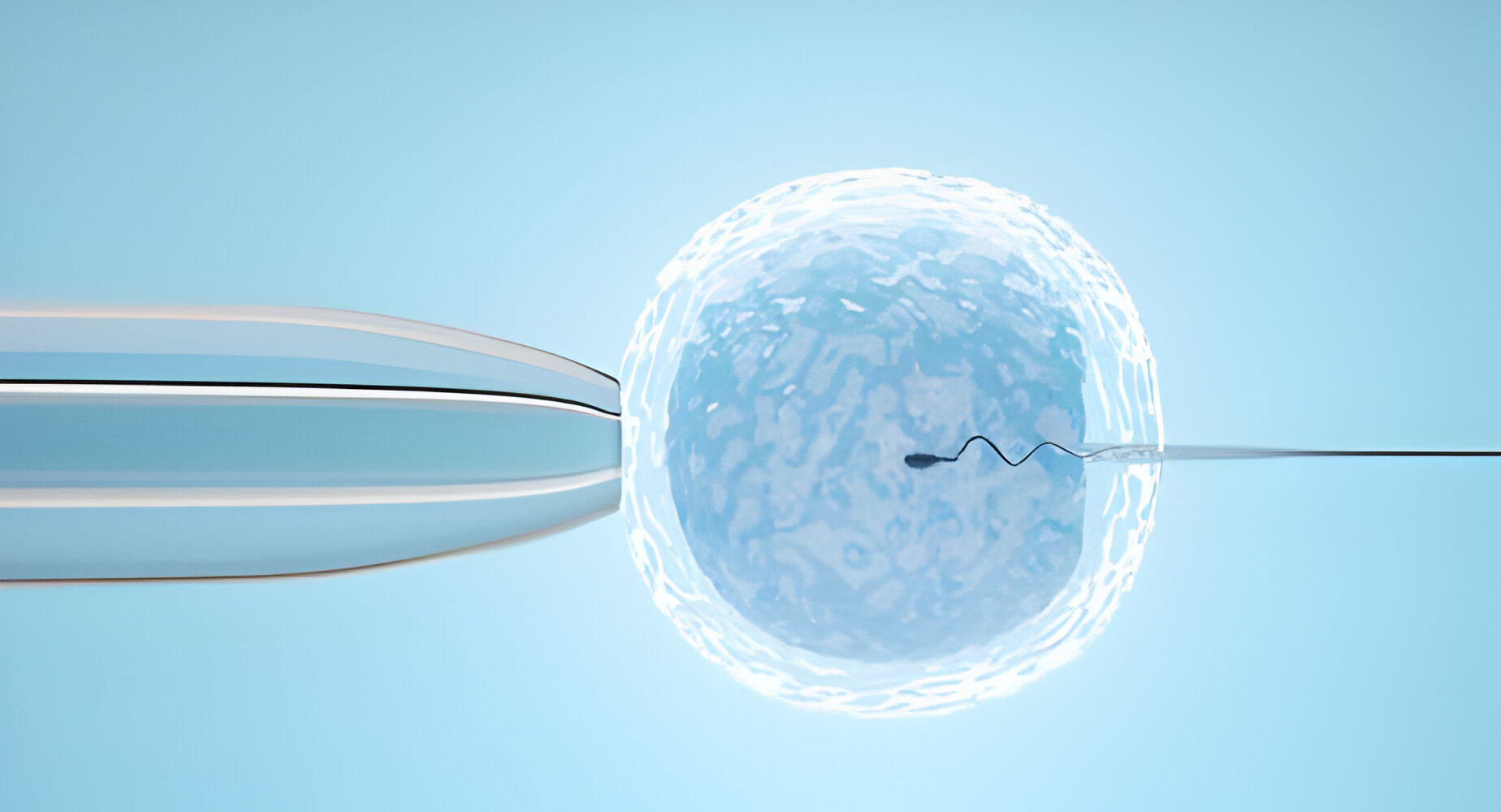ICSI (Intracytoplasmic Sperm Injection)
The most specialized form of IVF for male infertility and complex cases.
What is ICSI?
Intracytoplasmic Sperm Injection (ICSI) is an advanced fertility procedure and a specialized form of In Vitro Fertilization (IVF). This powerful technique involves our experienced embryologist manually selecting a single, morphologically normal sperm and injecting it directly into an egg. This process bypasses common fertilization challenges and is highly effective in cases of severe male infertility or when previous IVF attempts have failed. At Isha Women's Hospital, we combine state-of-the-art equipment with the precision of our expert team to give you the highest possible chance of successful fertilization and a healthy pregnancy.

Eligibility: Who Should Consider ICSI?
ICSI is an advanced and highly targeted treatment recommended for specific fertility challenges. It is particularly effective for couples facing:
Severe Male Infertility
This includes cases with very low sperm count (oligozoospermia), poor sperm motility (asthenozoospermia), or high numbers of abnormally shaped sperm (teratozoospermia). ICSI can bypass these issues by manually injecting a single healthy sperm.
Failed Fertilization in Past IVF
If a previous standard IVF cycle resulted in poor or no fertilization, ICSI is often recommended to overcome this specific barrier and ensure successful fertilization in a subsequent cycle.
Surgical Sperm Retrieval
For men who require sperm to be surgically retrieved (e.g., via Micro-TESE) due to a blockage or other issues, ICSI is the necessary procedure to ensure these limited sperm samples are used effectively.
Genetic Testing (PGD/PGS)
ICSI is often used in combination with genetic testing (PGD/PGS) of embryos. It ensures that fertilization is achieved and that the resulting embryos can be screened for chromosomal abnormalities before transfer.
Your ICSI Journey: A Step-by-Step Guide
1. Consultation & Assessment
Your journey begins with a detailed consultation with Dr. Chinmay Pataki to assess your fertility history and determine if ICSI is the right path for you.
2. Ovarian Stimulation & Retrieval
We stimulate the ovaries with medication to produce multiple eggs. Once mature, a minor procedure is performed to retrieve the eggs and a semen sample is collected from the male partner.
3. Sperm Selection & Injection
This is the heart of the ICSI process. Our embryologist carefully selects a single, healthy sperm and injects it directly into the egg, bypassing any fertilization barriers. This increases the chances of fertilization.
ICSI Success Rates & Key Factors
The success of any fertility treatment is a deeply personal journey, but understanding the general factors that influence outcomes can be helpful. While success rates are generally high, they can be affected by:
Age of the Female Partner
A woman's age is the most significant factor influencing success rates, as egg quality and quantity naturally decline over time. However, ICSI is highly effective at fertilizing the eggs that are retrieved.
Sperm and Egg Quality
The overall health and quality of both the sperm and eggs used in the cycle are paramount. Our advanced lab techniques and selection process are designed to use only the best samples.
Expertise of the Embryologist
The skill of the embryologist performing the injection is crucial. Our highly experienced team ensures the precision and care needed for optimal fertilization and embryo development.
Underlying Health Conditions
Conditions such as uterine abnormalities or endometriosis can affect implantation. We conduct thorough pre-treatment assessments to address these factors and create a personalized plan.
ICSI vs. Standard IVF: What's the Difference?
While ICSI is a form of IVF, it differs in a crucial step. Here is a simple comparison to help you understand why your specialist might recommend ICSI.
Standard IVF
- Fertilization: Sperm and eggs are placed in a dish to fertilize naturally.
- Best for: Couples with healthy sperm and no fertilization issues.
- Limitation: Ineffective for severe male infertility or unexplained fertilization failures.
ICSI (Intracytoplasmic Sperm Injection)
- Fertilization: A single sperm is injected directly into each egg.
- Best for: Severe male factor infertility (low sperm count, motility issues) and cases with a history of failed fertilization with standard IVF.
- Advantage: Bypasses fertilization challenges, significantly increasing success rates in specific cases.
Dr. Chinmay Pataki and our team will recommend the best approach for your unique situation. Schedule a consultation to learn more.
Risks & Cost of ICSI
We believe in complete transparency. Our team will provide a detailed consultation to discuss both the potential risks and the financial aspects of your treatment plan.
Risks and Limitations
While ICSI is safe, potential risks include a slightly higher chance of multiple pregnancies. Our team uses best practices to mitigate these risks and will discuss them with you thoroughly. It is important to note that ICSI does not guarantee a successful pregnancy, but it significantly increases the odds of fertilization.
Cost of ICSI in Dombivli
The cost of an ICSI cycle can vary based on individual needs and any additional procedures. As it is an add-on to IVF, the total cost will be higher than a standard IVF cycle. We provide a transparent and detailed cost breakdown during your consultation to help you plan your finances effectively.
Lifestyle & Pre-Treatment Preparation Tips
Maximizing your chances of success begins before the procedure. Here are some simple, actionable tips for both partners to prepare for an ICSI cycle.
Tips for the Male Partner
- Healthy Diet: Focus on a diet rich in antioxidants, like fruits and vegetables, to improve sperm health.
- Avoid Harmful Substances: Minimize or avoid alcohol consumption and smoking, as they can negatively impact sperm quality.
- Manage Stress: Engage in regular exercise, mindfulness, or hobbies to reduce stress levels.
Tips for the Female Partner
- Balanced Nutrition: Eat a healthy, balanced diet rich in folic acid and other essential nutrients.
- Maintain a Healthy Weight: Being within a healthy weight range can optimize hormonal balance and improve success rates.
- Reduce Stress: Practice relaxation techniques such as yoga, meditation, or light exercise to stay calm and positive throughout the process.
Meet Our Founder & Leading Specialist

Dr. Chinmay Pataki
M.D GYNEC, IVF & ICSI Specialist
Dr. Chinmay Pataki, the founder of Isha Women's Hospital, is a renowned specialist in fertility, gynecologic laparoscopy, and high-risk pregnancies. His journey is marked by excellence, including being a university rank holder and a Gold Medalist in M.D. Gynecology.
He has trained at world-class institutions, including Weill Cornell Medical College in New York for male infertility and Micro-TESE for zero sperm count, and in Germany and Italy for advanced laparoscopic surgeries. With over 10,000+ IVF cycles and 15,000+ laparoscopies to his name, Dr. Pataki's expertise ensures that you are in the most capable hands. He is a true pioneer in reproductive healthcare, dedicated to helping both women and men on their path to parenthood.
Frequently Asked Questions
When is ICSI recommended?
ICSI is primarily recommended for cases of male infertility, such as low sperm count, poor sperm motility, or abnormally shaped sperm. It is also used when previous IVF cycles resulted in poor or no fertilization.
Is ICSI safe for the baby?
Studies have shown that children born via ICSI are as healthy as those conceived through traditional IVF or natural conception. Our specialists will discuss any potential risks with you in detail during your consultation.
What is the cost of ICSI treatment?
ICSI is typically an add-on to the standard IVF procedure. We provide a detailed cost breakdown during your initial consultation to ensure full transparency and can discuss potential financing options.
What is the success rate of ICSI?
The success rate of ICSI is comparable to that of traditional IVF. It is highly effective at achieving fertilization in cases where standard IVF may not be successful due to male factor infertility.
Does ICSI increase the risk of multiple pregnancies?
The risk of multiple pregnancies is associated with the number of embryos transferred, not the ICSI procedure itself. Our team will work with you to determine the number of embryos to transfer to minimize this risk.
How long does the ICSI procedure itself take?
The fertilization step of ICSI, where the sperm is injected into the egg, is a quick, precise procedure that takes place in our lab. The entire treatment cycle, from ovarian stimulation to embryo transfer, typically takes about 2-3 weeks.
Can ICSI be used with frozen sperm?
Yes, ICSI is a great option for using frozen sperm. The procedure allows a single healthy sperm to be selected, making it highly effective even with a limited sample.
What is the recovery like after egg retrieval for ICSI?
After the egg retrieval procedure, most women experience mild cramping or discomfort for a day or two. Our team will provide detailed post-procedure care instructions and is available to answer any questions you may have during your recovery.
Hear From Our Happy Families
Ready for Advanced Fertility Solutions?
Schedule a consultation to learn if ICSI is the right path for you on your journey to parenthood.
Book a Consultation